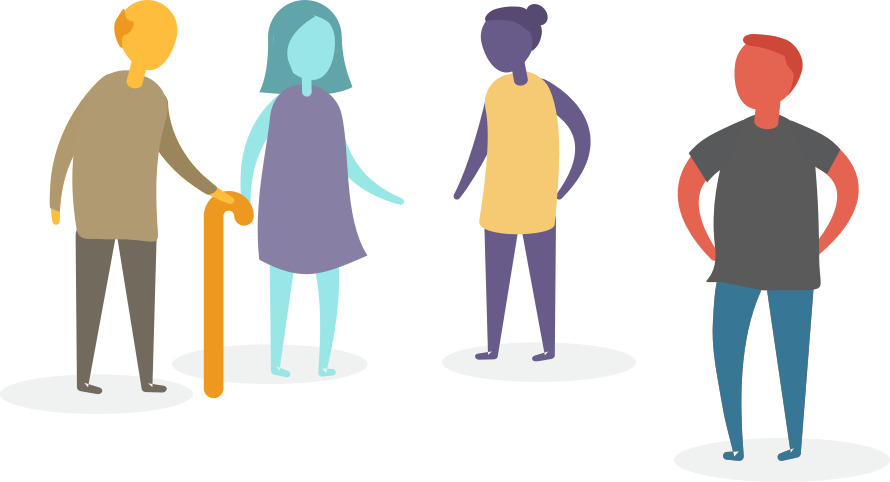Your Health Care Team
 Your journey with chronic kidney disease (CKD) may be difficult at times, but you have an entire health care team who will help support you. If you are in the early stages of CKD, your family doctor (primary care provider) will be the main person you will see for your health care. To help you live well with CKD, there are other health care providers that may be part of your team, including a pharmacist, nurse, dietitian, kidney doctor (nephrologist) and a social worker.
Your journey with chronic kidney disease (CKD) may be difficult at times, but you have an entire health care team who will help support you. If you are in the early stages of CKD, your family doctor (primary care provider) will be the main person you will see for your health care. To help you live well with CKD, there are other health care providers that may be part of your team, including a pharmacist, nurse, dietitian, kidney doctor (nephrologist) and a social worker.
Patient (“you”)
You, the patient, are the most important part of your health care team. You know your body and lifestyle best, after all this is your CKD journey. Your treatment and self-management choices will have the biggest impact on you. As part of the health care team your job is to be empowered and learn as much as you can about your illness, to be able to communicate any changes in your health and be actively involved in your own care.
Family doctor (Primary care provider)
Your family doctor is the person you see in the community who will give you advice and guidance about your health in general. They will also monitor how your kidneys are doing and help you manage your CKD or any other chronic condition you may have, like diabetes or high blood pressure. Your family doctor will also help coordinate the involvement of your other health care team members.
Pharmacist
Pharmacists will be able to instruct and counsel you on the proper use and potential side effects of any prescribed medications and non-prescription medications (like Tylenol). You need to make sure you let your pharmacist know that you have CKD and tell them about any medications or supplements (vitamins and herbal supplements) you are taking so they can make sure they are safe for your kidneys. Always check with your pharmacist when you are starting a new medication including the ones you buy without a prescription.
Nurse
Your nurse will develop your care plan and work with your health care team to solve any issues or problems you might have. Your nurse will help answer any questions or concerns you might have regarding your CKD journey.
Dietitian
Dietitians know what foods, drinks, oils, fats and seasonings are right for people like you who have CKD. They can also offer you advice and information on meal planning and what foods you should eat, limit and avoid, to help protect your kidneys. A dietitian will help tailor your nutrition to your specific unique needs and health care goals.
Social worker
A social worker can help you and your family members cope and adjust with the non-medical side of CKD and the changes that may occur at home, at work or in the community. They will help you learn how to incorporate CKD and the changes that come with it into your lifestyle and activities. They can provide you with emotional, financial, family, school, and work support. Social workers know about resources in the community and can help you access those services when needed.
Kidney doctor (Nephrologist)
Nephrologists are kidney doctors who specialize in treating CKD. You may be referred to a kidney doctor who will monitor your kidneys, talk to you about treatment options and what to expect with CKD.
